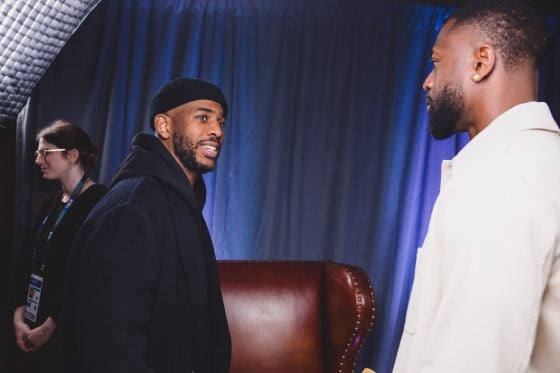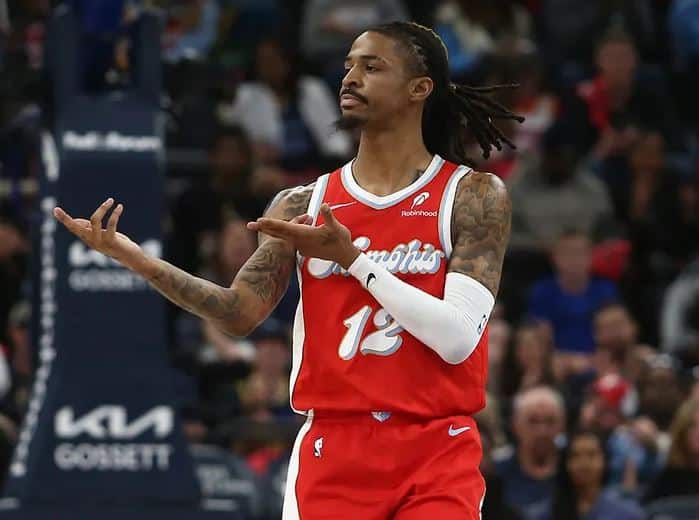Zeroing in on the G League’s Birmingham Squadron and four of its players – Jared Harper, Joe Young, Zylan Cheatham, and Malcolm Hill – during the historic 2021-22 season, details the relentless pursuit of the NBA dream. This excerpt focuses on the assignment of NBA players to the G League.
“You can’t play where you want to go if you’re not perceived as somebody who just plays hard as shit,” head coach Ryan Pannone said.
Once again, the Squadron had lost. And once again, Pannone found himself stressing the same message in the ensuing film session. An embarrassing clip played on the screen – after an ugly turnover, no one on the team had hustled back on defense.
“Look at the guys who have made it from here to the NBA,” Pannone continued. “Alex Caruso… I’m sure everybody saw the quote he had.”
Player-development coach Andrew Warren pulled it up on his phone and read it aloud. “The stuff I do is not always glamorous,” Caruso, the Chicago Bulls guard and former G Leaguer, had told reporters. “It’s stuff that wins basketball games. That’s what I love doing – winning.”
At 2-5, clearly Squadron players weren’t doing the winning stuff, like hustling back on defense after an ugly turnover. “It’s the little things that win games that truly fucking matter,” Pannone said. “You can go down the line of the guys who have made it.”
Pannone was right. If you performed such an exercise, you would find a lot of guys just like Caruso – gritty, tough, reliable, blue-collar players: Gary Payton II, Robert Covington, Danny Green, Fred VanVleet, Jonathon Simmons.
Before film ended and practice began, Pannone announced that the Pelicans would be assigning three players for the team’s next game (also against the Mexico City Capitanes): third-year center Jaxson Hayes, rookie forward Trey Murphy III, and undrafted two-way guard Jose Alvarado. “This is the G League,” Pannone said. In other words, this is what you should expect. “I understand how that impacts some of you individually.” Rotations would change. Minutes would decrease for certain players. Hayes and Murphy would be inserted into the starting lineup, replacing Malcolm Hill and James Banks. Alvarado would get extended run off the bench, cutting into Joe Young’s playing time.
Some frustration was to be expected in these situations. Assignments often brought tension to G League locker rooms—even more so in the D-League days, when there were fewer one-to-one affiliations and teams were shared among multiple NBA franchises. Back then, D-League coaches had to earn the trust of various NBA front offices.
“As a D-League team, you had to develop relationships—you may have had two or three NBA teams that worked with you,” said Jay Humphries, who coached the Reno Bighorns from 2008 to 2010. “But you had to develop a relationship with the management of the NBA team to make them comfortable. And typically during that time, when a player was brought down to your team, he would play a majority of the minutes, plays were going to be really focused on him and [based on] the conversations that you’ve had with the coaches, management, general manager of the team that’s sending him down about working on the things that he needs to get back.”
Even as the D-League evolved into the G League, the expectation remained that assignment players, or two-way players, would receive ample opportunity to shine, regardless of how that impacted others on the roster. It created a strange dynamic. An awkward dynamic. “I had a really positive experience in Sioux Falls. To be honest with you, I think part of that was the fact that I was on a two-way,” Miami Heat guard Duncan Robinson, who played thirty-three games with the Sioux Falls Skyforce in 2018–19, said. “I think it’s a little bit different. Not that I got preferential treatment, but I was kind of in and out, especially toward the second half of the year, and when I was in Sioux Falls and playing with the team, I was featured a lot on offense, plays were run for me, and all that sort of stuff. I’m very aware that I was in a privileged position relative to some of my peers out there.”
In some cases, assignment players did receive forms of preferential treatment, even when it wasn’t requested. “I remember on normal planes, as an NBA player, I would get first class, but the other guys, they would be in eco,” said former Houston Rockets center Clint Capela, who was assigned to the Rio Grande Valley Vipers during the 2014–15 season. “Sometimes I felt kind of weird. For some players in the U.S., when they’re like top players or whatever, it’s normal for them to have special favors. But for me, where I’m from in Europe, usually if we’re on the same team, everybody is treated equally. I felt kind of weird to be the only one in first class, the only one with my own [hotel] room, and I remember my per diem was more than everybody else’s too.”
Capela tried to support his teammates however he could, paying for dinners and passing on insights about the NBA. His mindset on the court, though, was to dominate everyone. “I felt that I had a duty to prove myself, to prove that I deserve to have that kind of sticker on my back that I’m an NBA player, even though I was younger,” he said. “I always went hard at practice, made sure to dominate every single time, and to also let the Houston Rockets know that every time I go out there and play, they have to pay attention also. I also felt that I had that duty to be dominant all the time.”
That was a mentality shared by most assignment players. Coming from the NBA, those players were supposed to be better than everybody else. “I do think that when you’re sent down from your NBA team, that is the attitude that you have to have in order to not stay there,” Humphries said. “I don’t belong here with these guys.” Of course, if it leaned more toward cocky than confident and inspired a selfish approach on the floor, that attitude had the potential to spark conflict. Squeaky Johnson even recalled one player who was sent down to the Austin Toros getting into an argument with a coach and shouting, “I make more money than you!” Which, to be fair, was definitely true.
Mix some or all of these aspects together – the mindset of assignment players, the minutes they took from everyday G Leaguers, the preferential treatment they sometimes received – and the results could be… interesting. Or, as longtime G Leaguer Scotty Hopson put it with a laugh, “That’s a recipe for a disaster.” Hopson had experienced both sides of the arrangement; he had been the G Leaguer whose minutes were reduced due to the transfer of an assignment player, and the assignment player who took minutes from a G Leaguer.
“Now when I see somebody not handling it the way I would, I go say something,” Hopson explained, referencing the situation from the perspective of a G Leaguer, “because I’ve been there before and I don’t want them to suffer from a lack of humility, you know what I mean? Because it’s not that deep – it’s not about you right now. I would hate to see somebody fail from that as opposed to their performance.”






